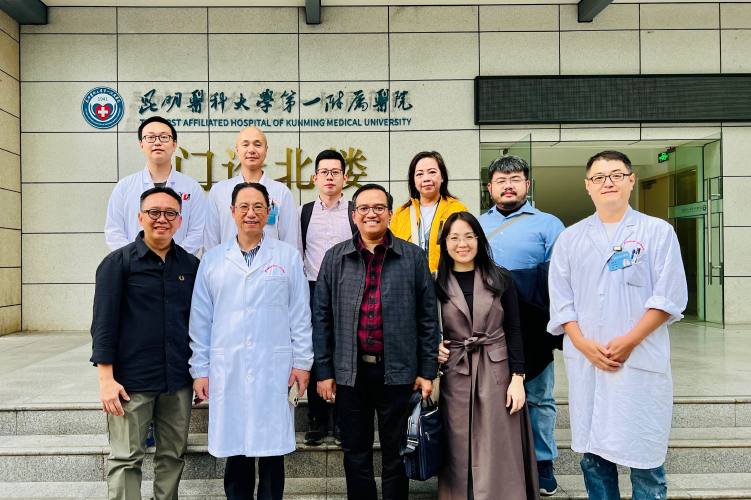
Comparative Study on Neuromodulation in the Central and Peripheral Nervous Systems Using Programmable Implanted Neuromodulation Stimulator (PINS)
From October 21 to 24, 2024, four representatives from Rumah Sakit Pantai Indah Kapuk (RSPIK) embarked on a scientific visit to China to deepen their expertise and exchange experiences on the use of neuromodulation implant technology in medical procedures, particularly in the field of neurology. The visit aimed to explore advanced treatments involving cutting-edge technologies such as Deep Brain Stimulation (DBS), Vagus Nerve Stimulation (VNS), Sacral Nerve Stimulation (SNS), and Spinal Cord Stimulation (SCS), which are increasingly vital in modern medicine. These neuromodulation techniques are designed to provide micro-electronic stimulation for neurodegenerative diseases, trauma-related conditions, and organic mental disorders, thereby alleviating symptoms and improving patients' quality of life. In some cases, even in the early stages of treatment, neuromodulation has been shown to restore patients' quality of life to pre-diagnosis levels.
The RSPIK representatives who participated in this visit are esteemed specialists in their respective fields:
The visit included stops at four leading hospitals in China, each specializing in different aspects of neurological treatments, especially in Parkinson's disease, epilepsy, urinary incontinence, neuralgia pain (due to nerve irritation or injury), and neuropsychiatry. The objective of the Kunming visit was to observe the direct application of implant neuromodulation technology in neurology and to explore potential future collaborations with these renowned Chinese hospitals.
During the visit, RSPIK representatives not only toured the hospitals but also participated in perioperative procedures and engaged in in-depth discussions with doctors and medical teams at each institution. The discussions covered clinical case studies, shared experiences with advanced technologies, and the challenges of treating neurological patients with high-tech equipment. Additionally, the RSPIK team observed implant procedures in operating rooms and patient evaluations post-surgery, offering practical insights into how these technologies can improve treatment outcomes, reduce risks, and accelerate recovery.
The hospitals warmly welcomed the RSPIK team and expressed interest in further collaboration in the future. Several of the hospitals also showed interest in investment opportunities in the medical technology sector and healthcare facility development. The visit is expected to pave the way for stronger international cooperation, aimed at improving healthcare services, particularly in neurology and neurosurgery.
Conclusion
The RSPIK team's visit to China in October 2024 provided invaluable insights into the latest treatments for neurological diseases and enhanced skills in using programmable neuromodulation implant technology, with the ability to adjust micro-electronic doses remotely via telehealth. As this technology continues to evolve, RSPIK aims to integrate it into their medical services in Indonesia to offer the best care to patients. Additionally, the visit will foster closer relationships with international hospitals and help raise the standard of healthcare in Indonesia. These services will soon be available at RSPIK, following the approval of the medical device by Indonesia's Ministry of Health, as over tens of thousands of these implant procedures are already performed annually in China. This visit has also opened doors for international collaborations, including knowledge exchange, medical facility development, and investment in healthcare technology. Moving forward, RSPIK is committed to using the outcomes of this visit to enhance its medical services and offer innovative solutions for patients with neurological disorders in Indonesia.